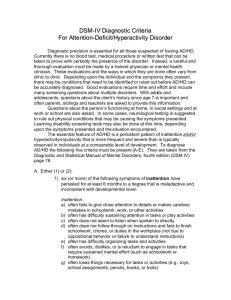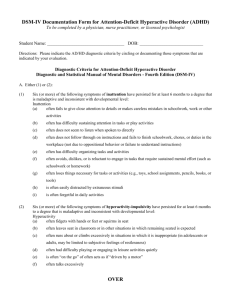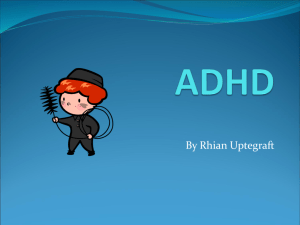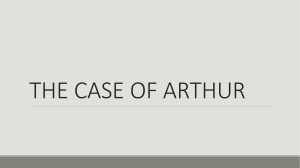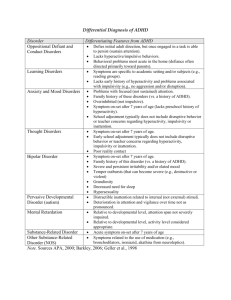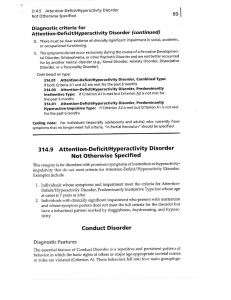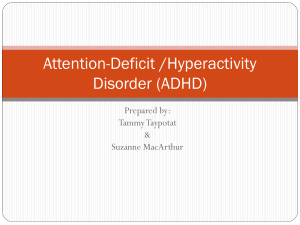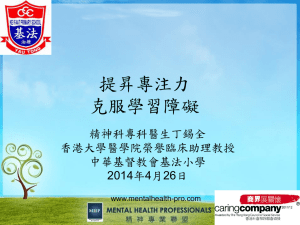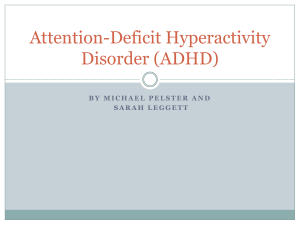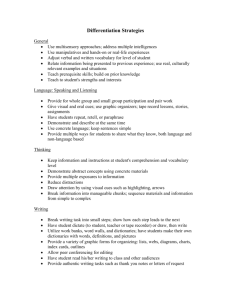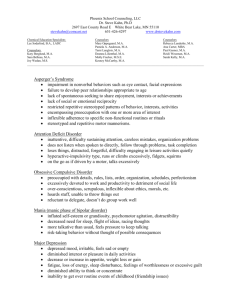IDEAS FOR ACCOMMODATING INDIVIDUALS WITH ADD/ADHD IN
advertisement
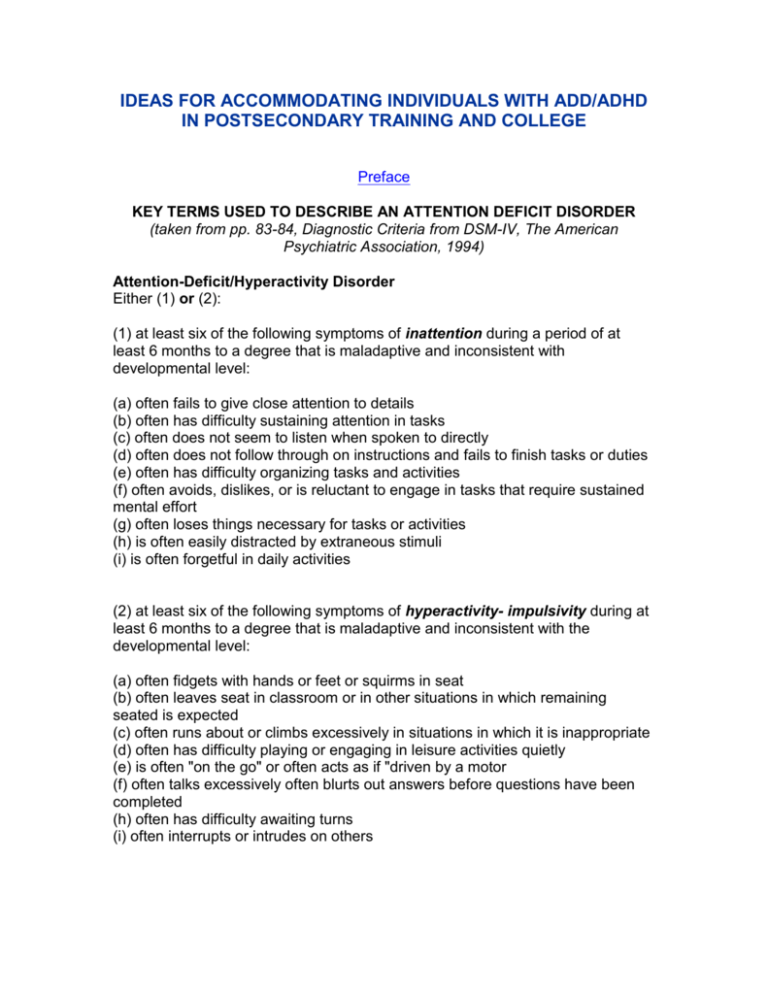
IDEAS FOR ACCOMMODATING INDIVIDUALS WITH ADD/ADHD IN POSTSECONDARY TRAINING AND COLLEGE Preface KEY TERMS USED TO DESCRIBE AN ATTENTION DEFICIT DISORDER (taken from pp. 83-84, Diagnostic Criteria from DSM-IV, The American Psychiatric Association, 1994) Attention-Deficit/Hyperactivity Disorder Either (1) or (2): (1) at least six of the following symptoms of inattention during a period of at least 6 months to a degree that is maladaptive and inconsistent with developmental level: (a) often fails to give close attention to details (b) often has difficulty sustaining attention in tasks (c) often does not seem to listen when spoken to directly (d) often does not follow through on instructions and fails to finish tasks or duties (e) often has difficulty organizing tasks and activities (f) often avoids, dislikes, or is reluctant to engage in tasks that require sustained mental effort (g) often loses things necessary for tasks or activities (h) is often easily distracted by extraneous stimuli (i) is often forgetful in daily activities (2) at least six of the following symptoms of hyperactivity- impulsivity during at least 6 months to a degree that is maladaptive and inconsistent with the developmental level: (a) often fidgets with hands or feet or squirms in seat (b) often leaves seat in classroom or in other situations in which remaining seated is expected (c) often runs about or climbs excessively in situations in which it is inappropriate (d) often has difficulty playing or engaging in leisure activities quietly (e) is often "on the go" or often acts as if "driven by a motor (f) often talks excessively often blurts out answers before questions have been completed (h) often has difficulty awaiting turns (i) often interrupts or intrudes on others Attention-Deficit/Hyperactivity Disorder (Not Otherwise Specified) a category of disorders with prominent symptoms of inattention or hyperactivityimpulsivity that do not meet criteria for Attention- Deficit/Hyperactivity Disorder. Though the above characteristics describe children, these characteristics can also follow that individual through adulthood. This might mean that the problems he/she had in grade school and high school ( restlessness, inability to concentrate, poor organization skills, projects being late, poor listening skills, etc.) might continue on through college and employment. ACCOMMODATIONS FOR CLASSROOM For lecture setting: tape recorders or micro tape players note takers hard copies of notes provided by the instructor or other student lap top computer for note taking calculators (some have voice synthesizers) classroom without a lot of distractions (such as noise, decorations, interruptions, etc.) request that the directions be clear and concise (possibly in written form on the blackboard or on paper) a detailed syllabus to give ample time to complete reading and writing assignments For test-taking: quiet environment extended time administer test on the computer use a tape recorder to record the answers oral examinations index cards, blank paper, and/or ruler (help keep place on line) Organization Skills break projects to weekly and then daily goals use daily checklist of what needs to be done that day (might help if you prepare it the night before) use alarm watch or timer as a reminder for meetings and classes electronic organizers or daily planners mini talking memo color coding for reading/scanning (highlighters and colored mylar templates) perform the task that is unpleasant first, and followed by the one that is liked or a reward Concentration use white noise machine or environmental soothers to cover noise study in an environment that doesn't have a lot of visual or auditory distractions use a watch alarm or timer set for 10 min intervals to be reminded to get back on task find outlets for restlessness such as exercise and/or sports when sitting in a cubicle area, try to sit away from other students or other distractions use a headset to listen to music without words- if music wouldn’t be a distraction
